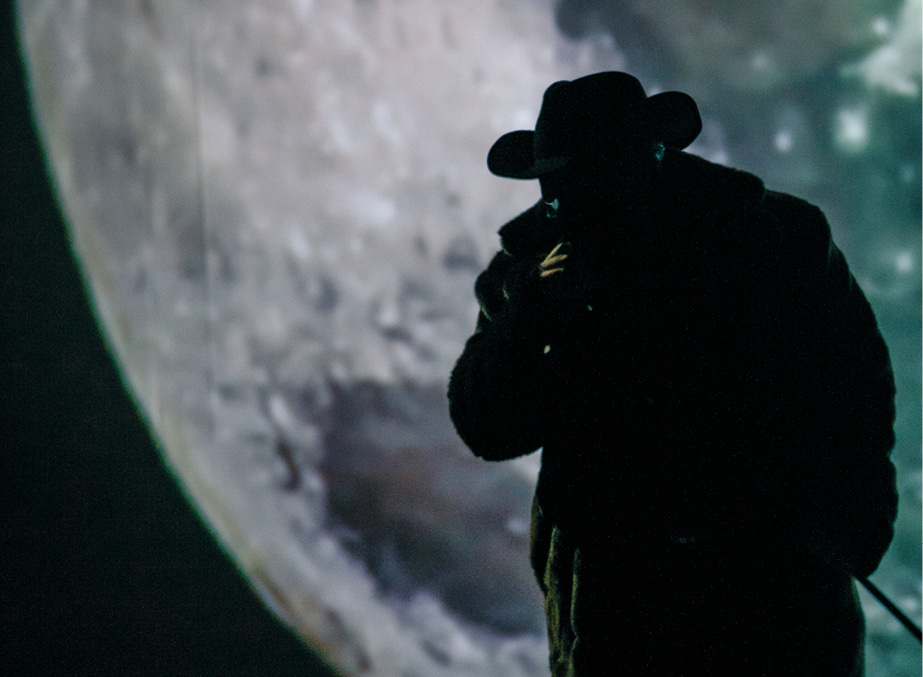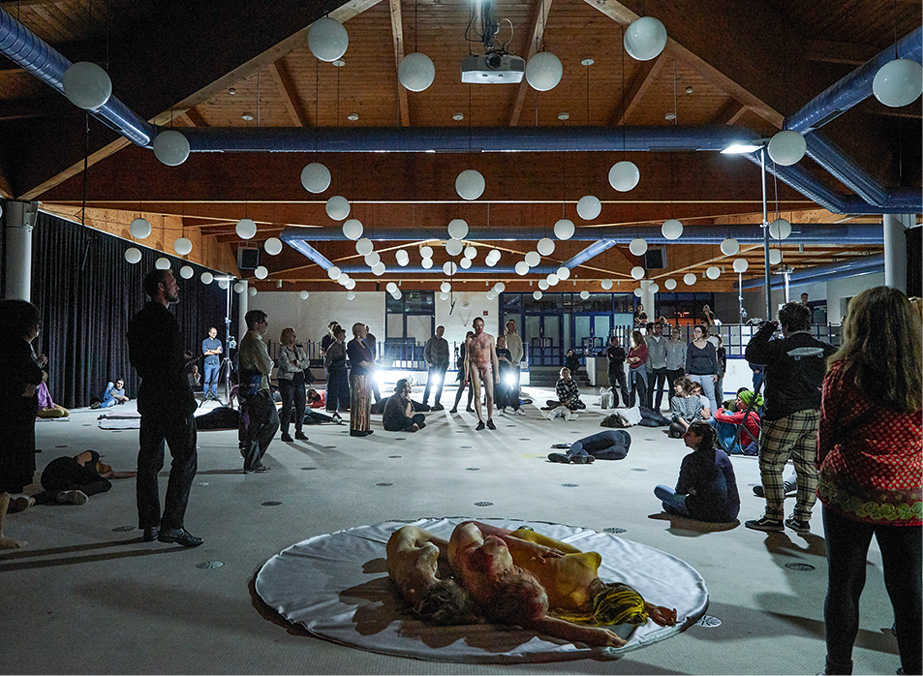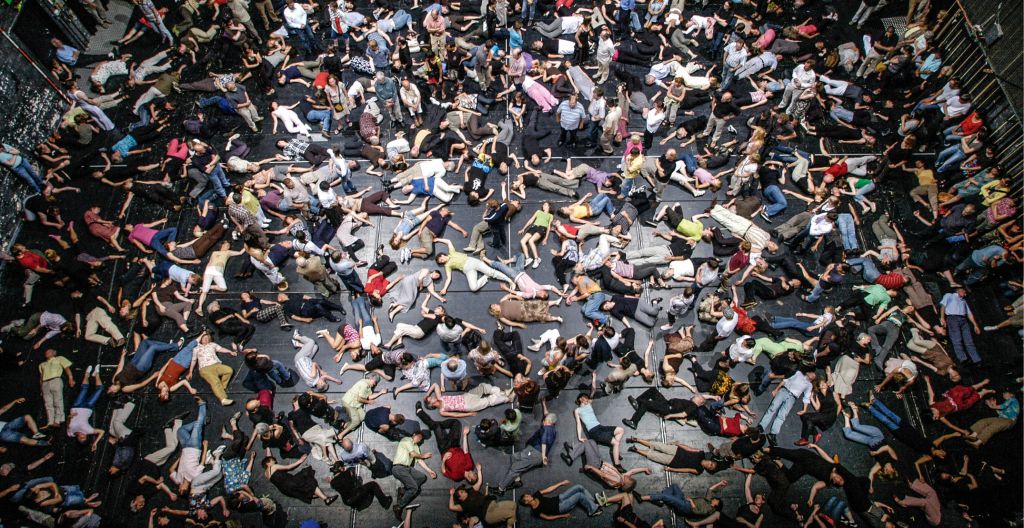A symposium of the mdw’s Gender Studies programme in cooperation with New York University
The interrelation of gender studies and research concerning the chorus (broadly defined as a performing ensemble) from a cultural studies perspective was the topic of an international symposium held on 10 and 11 January by the mdw’s Gender Studies programme in cooperation with the German Department of New York University. Renowned experts from Austria, the United States, and Germany spent two days discussing the relationship between the chorus and figuration (understood as the production of figures onstage as well as in language). This event showed just how political dealing with aesthetics can be, with the chorus as a starting point from which to address a question central to the mdw: How do we determine what diversity is, and how is this related to the current transformation of gender relations? This overall theme proved especially productive with regard to contemporary discussions of kinship, i.e. of new forms of relationality beyond traditional, paternal bonds.

“Do what you want. The only mandatory thing is Greek choruses.” Since Einar Schleef’s legendary 1998 production of Elfriede Jelinek’s Sportstück at the Burgtheater, from which this no-less-famous injunction is known, the staging of choruses has become a central field of research in cultural studies. In this symposium, the historically charged concept of the chorus in music and theatre was by no means used to situate ourselves within a supposedly European, millennia-old tradition. On the contrary: against the backdrop of fundamentally changing social conditions, new forms of assembly, new family patterns, and new notions of gender, referring to the afterlife of ancient choruses has rather served as a reflexive tool with which to understand our present—through actual work on artistic material. This event correspondingly embodied a collective effort to develop an understanding of a mdw-specific form of gender studies that is based in aesthetics. And the contributions, which were on the cutting edge of current theoretical developments, therefore revolved around the study of artistic phenomena and how they interface with the urgent political questions of our present.
In the course of these discussions, it became evident how closely linked critical feminist research is to the notion of the chorus as such: during the 1970s, “femininity” was employed as a figure of thought for that which antecedes a masculine image of “the human being” as the centre of the world. And in this sense, metaphors tied to femininity correspond with the figure of the theatrical chorus from which the (male) protagonist emerges. As debates on gender have diversified, research on the chorus has also become pronouncedly more nuanced, thereby departing from the representation of social groups. Against this backdrop, the symposium’s first day was devoted to the performing arts and present-day references to antiquity. Following the welcome address by Gerda Müller, the mdw’s Vice-Rector for Organisational Development, Gender & Diversity, the introduction presented by organisers Evelyn Annuß (professor of gender studies at the mdw) and Sebastian Kirsch (Humboldt fellow at NYU) reflected on “diversity” as an interface between gender studies and chorus-related research. The potential linkage of the mdw’s diversity strategy to research on lyrical chorus text fragments from the 7th century BCE was demonstrated by the theatre studies scholar Ulrike Haß (Ruhr University Bochum). The young girls in these choruses, which existed before the advent of ancient tragedy, were presented as a figure situated outside of a binary-gendered understanding of genealogy. Haß’ lecture thus made it possible to relate antiquity to our present-day discussions on transgender and third-gender concepts as well as on patchwork families. Sebastian Kirsch, whose book Chor-Denken has just been published, then linked his reading of Aristophanes’ comedies to the question of non-binary ways of relating and consequently to that of relating to the cosmos. His contribution thereby corresponded with current discursive shifts in gender studies: whereas Judith Butler’s early-1990s publication Gender Trouble was concerned with deconstructing heterosexual norms, gender studies today stress imaginations of other, trans-species relationships when seen in light of climate change debates.

The contribution by the Erfurt-based comparative literature scholar Bettine Menke, known for her studies on figuration in rhetoric, focussed on the afterlife led by the choruses of ancient comedy in modern-era comic stage characters. According to Menke, these stock figures have always been portrayed as an interminable blob featuring a grotesque mix of sexualized protrusions. Menke’s contribution provided an initial survey of present-day choral manifestations, and the well-informed discussion that followed her talk in this filled-to-capacity spiel|mach|t|raum event was commensurately intense. Functioning much like an open workshop, the symposium then merged into an artist talk with Claudia Bosse, director and head of theatercombinat (Vienna), who began by speaking about her widely noted production of Seneca’s Thyestes, which had its première just a few weeks ago in Vienna. This production stands out for its chorus that defies conventional sexualised or racialised markings of the bodies on stage despite the performers’ nakedness. This example once again made clear the present-day relevance of dealing with ancient material in a special way.
The second part of this symposium, moderated by the Viennese theatre studies scholar Monika Meister (IKM and Max Reinhardt Seminar), expanded the view to adjacent art forms and how they relate to the political. This day opened with a lecture by mdw music sociologist Rosa Reitsamer. Starting with the example of “Hors 29. Novembar”, a Viennese do-it-yourself (singing) chorus, Reitsamer showed how activists organise themselves by way of artistic practices and thereby have an effect on societal conflicts relating to gender and migration. New York-based German studies scholar Elisabeth Strowick’s impressive analysis of Gottfried Keller’s 19th-century Bildungsroman Der grüne Heinrich (known to English-speakers as Green Henry) then transferred the discussion of the chorus from the performing arts field to that of literature; this made evident the translatability of the previous day’s discussion of choral performance practices.

Before this successful symposium concluded with the première of Elsa-Sophie Jach’s and Thomas Köck’s chorally conceived stage production Kudlich in Amerika at the Schauspielhaus, Andrea Krauss of the German Studies Department at NYU spoke about her investigation of recently published writings by philosopher Hannah Arendt and Arendt’s failed project on Marx, thereby demonstrating how the notion of the chorus can be transposed to various fields of research. This international symposium, with its high-calibre participants, thus provided some initial glimpses into a transdisciplinary field of cultural studies-oriented gender studies, one that unites scholarly and artistic research and takes working in and with the arts seriously. What’s more, this coming autumn will see a follow-up symposium featuring a new combination of participants held at New York University with the objective of intensifying the dialogue between German- and English-speaking research approaches, thereby emphasising intersectionality. The present symposium, for its part, gave rise to two future initiatives: students Dagmar Tröstler (Gender Studies) and Cosima Baum (Stage Design) have now joined forces to work on a choral performance that will be presented to the public this May, and there will also be a workshop on artistic and scholarly choral research involving members of the mdw community.

